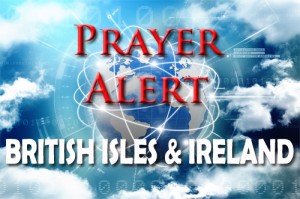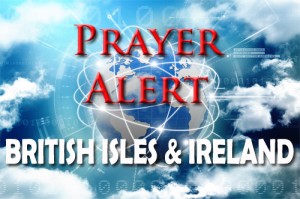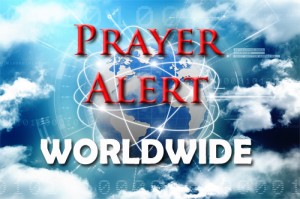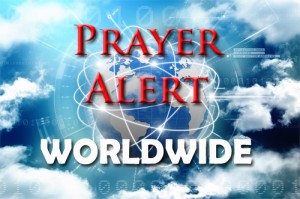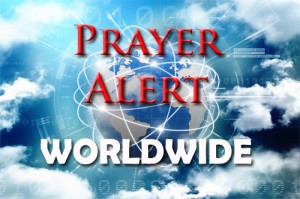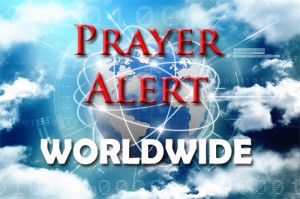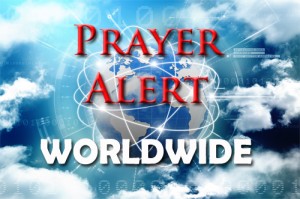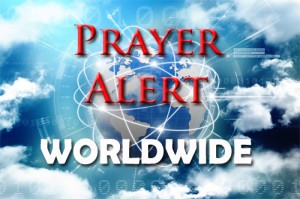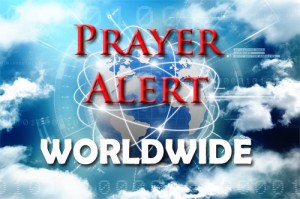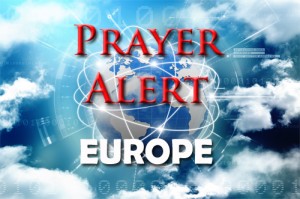
Super User
Lorem ipsum dolor sit amet, consectetur adipisicing elit, sed do eiusmod tempor incididunt ut labore et dolore magna aliqua. Ut enim ad minim veniam, quis nostrud exercitation ullamco laboris nisi ut aliquip ex ea commodo consequat. Duis aute irure dolor in reprehenderit in voluptate velit esse cillum dolore eu fugiat nulla pariatur
Ireland has said it will block progress of Brexit negotiations in December, unless the UK gives a formal written guarantee there will be no hard border with Northern Ireland. Michel Barnier told the Centre for European Reform, ‘We need to preserve stability and dialogue on the island of Ireland. We need to avoid a hard border. I know that this point is politically sensitive in the UK, it is not less sensitive in Ireland.’ Ireland will be staying in the EU, The UK will be leaving, but neither side wants to tear up the Good Friday agreement and put a hard border. We can pray for all who are involved in border issues and discussions to have God inspired solutions to every challenge facing them now and in the future. Pray for inventive, original technological solutions that will maintain peaceful co-operation between North and South and provide even more new opportunities for cross border trade. (Linda Digby, Prayer Alert)
In recent years, Sports Chaplaincy UK has been encouraging its Chaplains to host stadium carol services at Christmas. Sports stadiums have been described as secular cathedrals as many people go there at weekends. At Christmas we remember God moving into our neighbourhood. How might you, or your church, pray for and support one of these carol services to celebrate this amazing fact? Warren Evans, Chief Executive of Sports Chaplaincy UK
Jiang Tianyong, a prominent Chinese human rights lawyer has been jailed for two years, the latest conviction in Beijing's crackdown on rights activists. He was found guilty of inciting subversion of state power and defaming China's political system. His wife told Reuters that the verdict was unacceptable. Amnesty International dismissed the trial as a ‘sham’. It is estimated that over 300 lawyers, legal assistants and activists have been questioned, and more than two dozen of these pursued as formal investigations. Mr Jiang defended human rights activists and fellow rights lawyers as well as also Falun Gong meditation practitioners and Tibetan protesters. The court also found him guilty of using social media to attack the Chinese government and of inciting others to demonstrate in public. China tortures people in prison see also http://www.bbc.co.uk/news/blogs-china-blog-41661862
Uganda: Over 9,000 drop out after registering for PLE (Primary Leaving Examination)
Pupils who pass their PLE exam can progress to secondary school. Primary school tuition is free but pupils, especially in rural areas, face serious challenges to finishing their education. They lack books and pens, often having to study all day on an empty stomach since no meals are provided at school, and schools often have poor teaching methods. Information obtained from Uganda National Examinations Board website indicate that out of 333,482 pupils who registered for PLE from 2010 to 2016, a total of 9,320 did not sit. A government official said, ‘Grazing livestock is one of the major reasons for the school dropout.’ The other reasons keeping children out of school, he said, are poverty, underage marriage, trading, tea picking, stone quarrying and mining. However he said they have engaged parish chiefs, sub-county chiefs and chairpersons of school management committees to arrest parents of children who are removed from school See also https://www.theguardian.com/katine/2010/feb/08/education-system-explainer
UK documentary director David Cohen filmed Israel's humanitarian work treating victims of Syria's civil war. ‘Love Your Enemies’ was premiered at a special Westminster screening. It featured interviews with medics and patients of pioneering surgery on horrific wounds at hospitals in Western Galilee. The film was enthusiastically received by an audience including former Cabinet Minister Stephen Crabb, Labour’s Ian Austin, Andrew Percy MP, and Israeli deputy ambassador Sharon Bar-li. But in a question and answer session following the hour long film Mr Cohen revealed that discussions with the BBC and Channel 4 over purchasing the film had so far proved fruitless. Israel and Syria are two enemy states, however a young Syrian patient said, ‘we are taught that Israel is the enemy – but all I have seen here is humanity.’ Unfortunately a documentary showing ground-breaking medical relief treatment of 4000+ Syrian war victims was considered ‘too Zionist’ for mainstream British television.
Lebanon has a delicate shared power tradition of a Maronite Christian President and Sunni Muslim Prime Minister. On 5th November Prime Minister Saad Hariri suddenly disappeared, fearing assassination and turned up in Saudi Arabia, claiming he is free and will soon return to Lebanon. His sudden resignation coincides with an aggressive purge of rivals by Saudi Crown Prince Mohammed bin Salman in his anti-corruption drive. Iran backs Hezbollah, who play a dominant role in Lebanese politics. There is heightened tension between Iran and Saudi Arabia. Hariri ‘said’ he hoped his resignation was a positive shock between the nations. Many doubt the authenticity of the statement; fearing Lebanon's crisis will set the stage for a Middle East calamity. Christians usually suffer in these regional conflicts. Windows International are asking people to pray for: -truth and transparency to emerge as Lebanon and other countries seek answers to Hariri's strange disappearance; -Prime Minister Saad Hariri and his family’s safety and freedom of movement.
Nearly 7,700 homes and buildings burned in Northern California’s unprecedented wildfires. Like many others, they had minutes to grab important documents and photo albums. ‘The day after the fire my mother-in-law spent the afternoon searching through rubble. She returned weary but eager to show me one find; her mother’s porcelain Christmas ornaments, still dusted in ash. This struck me as a picture of grace. At Christmas we decorate trees. As Christians, we do this in celebration of God’s merciful plan for redemption - Christ came to earth to die for sinners, the just for the unjust, making good the destruction sin has wrought. Yet, how often do I sing ‘Amazing Grace’ without amazement, blinded by comforts and my perceived self-sufficiency. Thank God for being at work in trials and suffering. Praise Him whether you are in plenty or in want, whether well fed or hungry.
Over 700 languages are spoken in Indonesia and people are scattered across 6,000 islands varying in composition from rural fishing villages to highly metropolitan mega cities. Persecution is a reality for many believers in the most populous Muslim nation in the world. Although only 15% of the population follow Christ, the Indonesian church is experiencing profound unity as a result of the persecution, and mission organizations are growing in number. Indonesian believers also face a unique challenge as many of their neighbours are in geographical transition due to large-scale resettlement projects, migration, and forced relocation after natural disasters. However, the emergence of Indonesian (a form of Malay) as the national language has allowed the Gospel to be communicated across ethnic and geographic borders as never before.
On the 22nd November, when President Mugabe resigned, celebrations on the streets resembled scenes inside a stadium after a soccer world cup victory. Like many Sub Saharan Africa countries, Zimbabwe’s population is young, 60% of the population is under 25 and 70% have known no other president. His successor Mr Mnangagwa, when minister for national security, was notorious for overseeing the the brutal 1983 campaign against supporters of Mugabe rival Joshua Nkomo. It became known as ‘Matabeleland massacres’. Between 10,000 and 20,000 Ndebele people died during the civil conflict, which involved the Zimbabwean Fifth Brigade, equipped and trained by North Korea. Mnangagwa is rumoured to have amassed a sizeable fortune, been involved in developing Harare diamond trading and was targeted by US sanctions early 2000, for undermining democratic development in Zimbabwe. He was also investigated by the UN for exploitation of mineral resources in Congo. Pray that his succession is not a continuation of the corrupt status quo.
Austrian far-right Party, FPO is talking with conservative party, OVP, and people have been protesting against the administration including FPO. FPO had led in the polls for two years - then Mr Kurz became chairman of the ÖVP and his charisma kept FPO (with neo-Nazi roots) from running the country. To govern Mr Kurz needs a coalition partner, and the FPÖ, was his first choice. Coalition talks began three weeks ago but nothing has yet been agreed. In Germany, coalition talks collapsed after a deadlock on migration and energy caused the FDP to quit negotiations. Angela Merkel faces either forming a minority government, or fresh elections. Many are wondering, ‘Is Europe fending off a populist uprising?’ see https://www.theguardian.com/world/2017/nov/19/german-coalition-talks-close-to-collapse-angela-merkel
